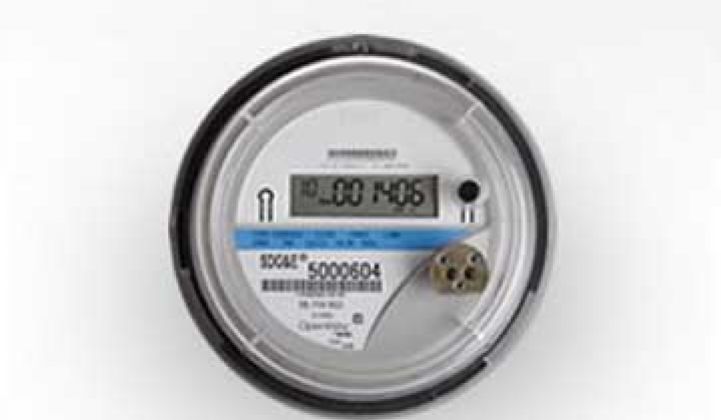More than a year ago, the California Public Utilities Commission ruled that the big three investor-owned utilities in California would have to provide residential usage data not only to their customers, but also companies that those consumers choose to work with.
To do that, Pacific Gas & Electric, Southern California Edison and San Diego Gas & Electric are all rolling out their own web portals or partnering with third parties to provide that information.
The CPUC has now taken the process a step further by outlining the privacy rules in a draft decision for how that data can be shared and stored between the utilities and other companies that customers choose to work with.
The information they have to hand out includes bill-to-date, bill forecast data, projected month-end tiered rate, a rate calculator, and notifications to customers as they cross rate tiers.
Because the CPUC can’t directly control the interested companies that want to leverage that data -- from Google to EnerNOC to Control4 -- it created rules for devices that will access the data from the smart meter.
For consumers who want to share their information with an outside company, a utility tariff will require that any home area network device that is “locked” to a certain third party, which will start transferring information from the smart meter, must be in compliance with the CPUC requirements. The utilities have six months to create those tariffs. They also must start a pilot study within six months to provide real-time or near-real-time pricing information to their customers.
For devices that aren’t locked into a particular third party, the utility will be charged with making consumers aware of “the potential uses and abuses of usage data should the customer forward or otherwise provide the data to another entity.”
Although companies are clamoring for that data now, and claiming the CPUC does not have the jurisdiction to tell them what to do -- there is another side where consumer advocates and others, such as the Electronic Frontier Foundation, are calling for even more stringent measures, such as the FTC's Fair Information Practice Principles. EnerNOC and others have argued that the privacy codes in Senate Bill 1476 adequately cover security concerns.
The decision by the CPUC also leaves some ambiguity over what to do if customers pick a device that bypasses the smart meter. However, the easiest (and cheapest) way to get the information will be to go through the meter, so at the end of the day, startups and consumer giants alike will probably choose to take the data straight from the horse’s mouth -- even if it means playing by the CPUC's rules.



